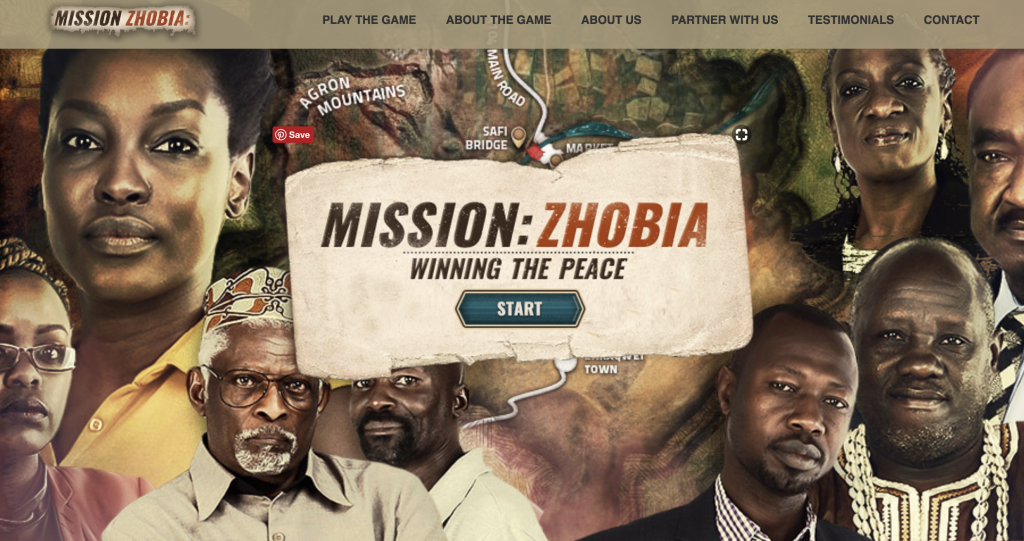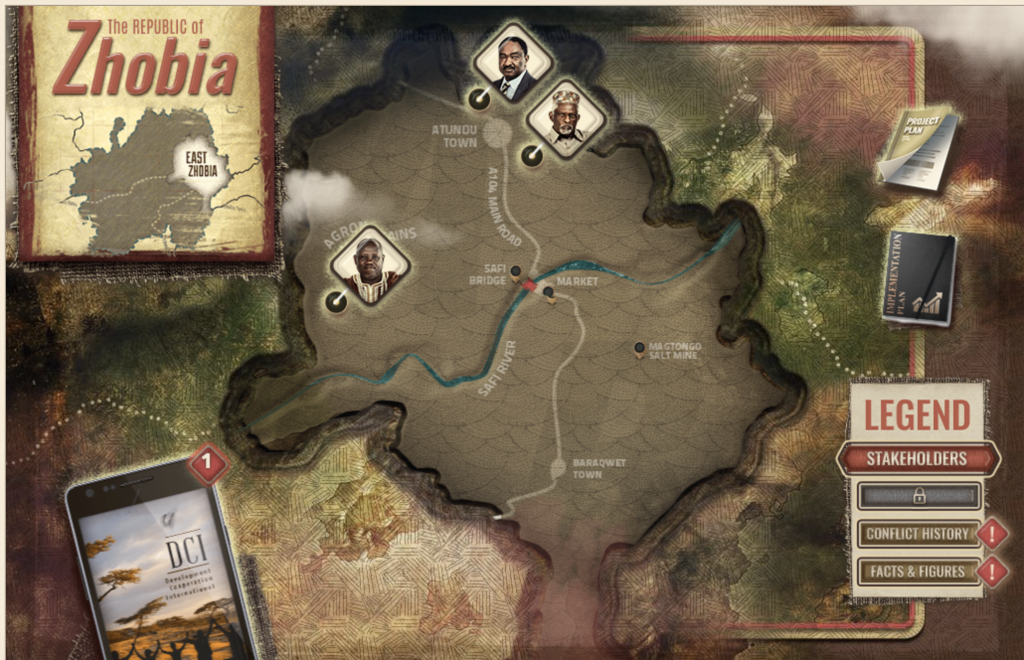Project Overview
Conflict. Mission: Zhobia is a web-based simulation that places the student in the position of a non-governmental organization (NGO) worker tasked with developing a plan to reconstruct the justice system in the fictional conflict-ridden country of Zhobia. Students must perform background research into My project involved incorporating the Mission: Zhobia simulation-game into POL 302 Ethnic the conflict, interview a variety of political and social stakeholders, and ultimately provide recommendations regarding the location of the court, training structure for legal staff, and the underlying legal framework for the new justice system. Upon submitting this report, the students are then told what the after-effects of their plan were.
Planning Process
As Mission: Zhobia simulation is a free, pre-packaged website there was little planning involved in its implementation from a design stand-point. The simulation came at the end of the introductory unit of the course where we focus on different institutional design issues in managing ethnic conflict situations. The lectures leading up to the simulation consistently stress the trade-offs one must consider in designing post-conflict political instructions and the notion that no one institutional structure alone will solve all the problems.


Implementation
I scheduled the simulation for the week following class readings and discussion regarding political institutions in conflict situations. We devoted the first one-hour and fifteen-minute class meeting of the week to students playing the simulation, and the second class meeting was a discussion and debriefing session. Students were asked to bring their own laptops to class that day and everyone was able to do so. The only logistical concern was whether students would be able to complete the exercise within the hour and fifteen minute time period. All but two students were able to and those students completed their exercise immediately after class.
Assessment
I assessed the exercise with a combination of formal and informal tools. Formally, the students were asked to complete a questionnaire asking them to share specific decisions they made along the way and to reflect on their experience. Informally, we devoted the class session following the simulation to a discussion of the students’ evaluations and observations.
For the reflective portion of the questionnaire, the students were asked 1) what they felt were the three most important items critical to success in the simulation, 2) what they would do differently along their own path of completion, and 3) what they learned through the process that they had not realized beforehand.
In response to question 1, student consistently stated that the most important consideration was gaining the trust of regional stakeholders was the most important element to consider. They observed that more decision options were presented to the player as they engaged with local leaders. The second most cited consideration was adequate background preparation. A number of students seemed to jump quickly to engaging the local leaders without doing their homework on the conflict in Zhobia. When leaders would ask them questions pertaining to the conflict, if the student answered incorrectly they would lose trust, limiting their options down the line.
Question 2 yielded results consistent with the prior observation. Students said they would have spent more time on the background materials and preparing for the stakeholder interviews. They also indicated that they would have avoided decisions early on that restricted their options later in the simulation.
Finally, in response to question 3 the key lesson the majority of students took away was the difficulty in finding solutions to the conflict that all sides would find acceptable. In our class discussion, numerous students indicated that they had chosen options they felt were sound and yet found that the situation descended back into violence after their report was submitted.
Reflections and Next Steps
I feel the simulation was a resounding success. I was concerned that the game setting would appear frivolous in the context of a course with such a grim topic. And yet watching the students reactions while they were participating indicated that they were actively engaged. The assessment results indicated that the primary lessons to be learned were in fact taken to heart by the students.
It would be possible to run this simulation outside of actual class time and devote the same time to post-simulation assessment activities. This is something I would consider next time. On the other hand, being available to address questions and potential technical glitches was also important. The time restriction within class may have rushed some students yet I found that 1 hour 15 minutes was adequate time for background research and questioning. Most students completed in the time as well.
In the final analysis, I found the Mission: Zhobia! simulation to be a very useful classroom exercise. The simulation showed them through experience what I could only stress in lecture: the importance of preparation and openness of dialogue when engaging in peace-building measures. Numerous students indicated that they went back and played the simulation multiple times to try and achieve a perfect score. This is final evidence that they themselves found the simulation to be an engaging experience. I look forward to running this experiment again the next time I offer POL 302 Ethnic Conflict and comparing that student experience with this one.
